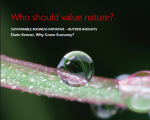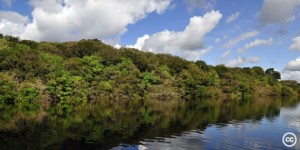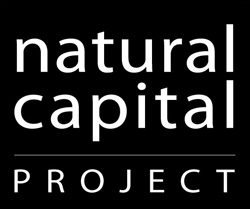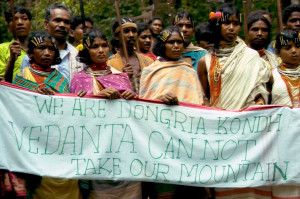Who should value nature?
This article is the executive summary of the report Who should value nature? published by the Institute of Chartered Accountants in England and Wales (ICAEW) © ICAEW 2014
Dario Kenner (Why Green Economy?) 16 December 2014
Do you know how to measure the value of the fresh water you drink every day or the carbon dioxide captured by the Amazon rainforest? Is it even possible to calculate a monetary figure for these things? And if nature is going to be valued across the world who should do it: accountants, governments, companies or communities?
Natural capital has been defined as ‘the world’s stocks of natural assets which include geology, soil, air, water and all living things’. The logic behind the natural capital approach is that by placing an economic value on nature (often monetary) we will start to protect it. Instead of receiving things like pollination and climate regulation for ‘free’ we will factor the environment’s value into our decision making because we will know how much it’s ‘worth’.
But should we be doing this? Many of us can agree that nature has an intrinsic value. Is it now time to go a step further and place an economic value on nature? Critics say nature’s intrinsic value is priceless and argue monetary valuation will leave environmental protection at the mercy of market forces as nature is traded and speculated on.
The big focus of current debates on natural capital is if we should value nature and how to do it. While these largely abstract debates are crucial there’s another question that is very rarely asked: who should value nature? As the exclusive interviews for this report show this is an important question with no clear answers.
In trying to answer this question it’s useful to focus on who should value it in developing countries because this is where ideas on recognising nature’s ‘worth’ are really going to be put to the test. In the global south biodiversity-rich land is under intense pressure to be converted for mining, oil and gas extraction, logging, livestock, plantations, dams – the list goes on. This momentum is only going to grow given that the vast majority of the world’s population lives in developing countries (where some groups are increasing their consumption), most of these countries depend on the extraction of raw materials for economic growth, and many developed countries have outsourced resources used for the products they consume.
But trying to work out who should value nature in developing countries is complicated not least because land rights in many areas of rich biodiversity are often heavily contested between states, indigenous peoples, local communities, private firms and individuals. In Sub-Saharan Africa it’s estimated that around 90% of land is untitled, while across the global south mineral, oil and gas, forest and agricultural concessions often overlap with indigenous lands.
Currently, it’s mainly expert bodies including consultancies, specialist companies, academia and conservation NGOs who are valuing natural capital in developing countries, although governments are also becoming increasingly interested. These expert bodies usually focus on monetary valuation because this is often what they have been asked to do. There is probably also a tendency to believe that monetary values will make a stronger business case to protect the environment. Another factor is the decision-making context which will determine if economic valuation is appropriate.
It’s important to signal there is as yet no consensus on how to do economic valuation and this is why there are initiatives to harmonise methodologies.
Since who owns land in developing countries is not always clear, it’s important to explore how other actors like indigenous peoples value nature. This is an important question because their territories are estimated to cover up to 24% of the world’s land surface and contain 80% of the earth’s remaining healthy ecosystems. Indigenous peoples often already recognise non-monetary values based on a spiritual connection to their ancestral lands.
For example, the Dongria Kondh indigenous community who live in the Niyamgiri hills in India successfully resisted a planned bauxite mine because of the spiritual value they placed on the area – they referred to the hills as their God and soul. This is a different approach that does not use complex economic models to place monetary values on nature. This different perspective on recognising nature’s value has led some indigenous peoples to strongly reject the natural capital approach.
With the debate raging fiercely on if nature should be valued it might seem better to postpone the question of who values for now. But because valuation (whether non-monetary or monetary) might be undertaken differently by different stakeholders it’s crucial to think about how the process would play out in practice (ie, whose values would carry more weight?) as this directly informs current debates on whether and how it should happen. For example trying to answer the question of who should value nature reveals it matters which stakeholders are valuing an area because the methodology they choose to use (of which there are many) will influence whether they place monetary or non-monetary values on an area.
Recognising there are diverse ways to value is important because contested land rights in the global south mean there are scenarios where different actors in developing countries will value the same area of nature differently. As the list of actors pushing for economic valuation grows – including accountants, consultancy firms, the private sector, governments, environmental NGOs, academics, United Nations agencies, and international institutions such as the World Bank – how do we decide who should do the valuing and whose values are taken into account? Which stakeholders have the power to limit valuation to non-monetary values or broaden it out to include monetary values? Who has the power to determine who has made the ‘right’ or ‘wrong’ calculation?
————————————
 Read the full report
Read the full report
Read exclusive interviews from the report with:
Pavan Sukhdev (CEO GIST Advisory, United Nations Environment Programme Goodwill Ambassador, TEEB Study Leader),
Richard Mattison (Trucost),
Thabit Jacob (Co-organiser, Green Economy in the South conference),
Teresa Pérez (World Rainforest Movement),
Giles Atkinson (Member of Natural Capital Committee, United Kingdom),
Joan Carling (Asian Indigenous Peoples Pact, Member of United Nations Permanent Forum on Indigenous Issues),
Davi Kopenawa Yanomami (spokesman for the Yanomami indigneous people),
Yoni Rivas (Movement of Unified Farmers in Aguán, MUCA).




Sanjay Kapoor via LinkedIn:
Thanks Dario for your report. Reminds me of how I have, and continue to, struggle with valuation vs. monetization. To equate the two seems to become an accomplice to the inherently reductionist process of monetization (or economic valuation), and runs the risk of commoditization as you have highlighted.
For me more questions emerge…Does placing an economic value on nature bestow value on it or does it only trigger the inclusion of value that has been there all along? If the latter, then is not the esteem placed on the initial business case unjustified, if many costs are simply not accounted for and externalized?
And yet externalizing costs become the default mode of our business case calculations, all the while blind to this enormous flaw. After all, should not the endeavour of our accounting strive for accuracy?
IMO, the benefit of ecosystem monetization comes from removing a barrier to internalization of costs. If we do not monetize ESs, then we have a “legitimate reason” for not accounting for the cost impacts keeping them externalized. It is easy to use as a crutch that it is just not possible to internalize them as the unit of measurement is not the same – they are a beast of a different nature.
ESV is trying to address a limitation of our current economic system, not enhance the ecological system. I stress this only so that we do not forget which domain is in service to which.
Cristina Hernández via LinkedIn:
Interesting article, Dario, thank you for your opinion. I agree with the idea about natural values measure can be subjective. And as far as the target is to show nature’s importance, we have to be sure that our methodology is as neutral as possible.
In this framework, some different international organizations are already working on that (like Natural Capital Coalition).
The questions are…
– How much do you trust these different organizations’ methodologies?
– Would you trust further in what kind of organization/institution/enterprise in order to define this methodology?
– Do you think is better to avoid this nature value measure?
To answer your first and second questions:
There is already a lot of debate on the strength/weakness of the main methodologies (see appendix 2 of my report). What I am trying to say in my report is that deciding who the ‘experts’ are who should value nature is not as clear cut as it might seem. Indigenous peoples (and other stakeholders who live close to nature) are also experts, they just don’t use economic methodologies. The point I am making is that who values influences the methodologies they use….and this will influence the values they place on nature (non-monetary or monetary)…which will affect outcomes after valuation.
On your third question: I think it needs to be made clear that valuing nature as natural capital is just ONE option available to us (for example environmental regulation is another option).
The question that needs to be asked is: will placing an economic value on nature guarantee it is protected? I have serious doubts about this because I do not see how valuation will challenge current levels of unsustainable consumption and the extractive growth model that is destroying the environment (there are also strong critiques of the natural capital approach including that it will commodify nature – see Box 3 of my report).
Nick Blyth via LinkednIn:
Dario. Really good to read this — and especially the community and peoples perspectives. Thank you
Thanks Nick. It’s crucial to understand different peoples perspectives on valuing nature, not least because the areas of the environment that could end up being valued in developing countries are often where indigenous peoples and local communities live, and/or directly depend on for their livelihoods
Thanks Dario – Yep fully agree. In developed countries where nature has been squeezed out I sometimes wonder who the equivalent stakeholder or community is. Some would suggest its not – local Nimbys – perhaps it is a manifestation through public support for the wildlife trusts, RSPB, Woodland Trust etc. possibly even sometimes through environmentally responsible businesses wanting to do the right thing..
Brett Matulis via twitter:
“Who should value nature” is a crucial question, but presupposes valuation *should* take place.
Yes true. FYI I am not defining how valuation would be done. It could also be non-monetary e.g. not based on economic models.
Yes, got that from the piece & appreciate that it was strongly emphasized. Though I think we should avoid “valuation” language.
Michael Baran via LinkedIn:
To some extent there are already values on nature (those things that are not organic life forms as well as many organic life forms).I think there is a good argument for NOT putting a value on nature (defined as any organic life forms), just as we should not ethically put a value on people (us). However, what we can and perhaps could do is put a value on the goods produced and services provided by nature (defined as any organic life forms). Just as we humans individually or collectively put a value on the goods produced and services provided by us as well as the exchange of those goods and services (this is an integral make-up of our financial system). We can do the same thing for the goods produced and services provided by nature (a good example of this can be found on the Gepsd website under the proposal ECO$ financial system) .This proposed ECO$ financial system could be added seamlessly to our current financial system. The Gepsd proposal could provide significant financial funding for Environmental Organizations and projects to clean up, restore, and protect natures space (in addition to other sustainable projects). As there are little or no financial program(s) specifically for the environment in place in many nations, this would be a global initiative that would add an economic sector to the global economy, which could be of significant financial and environmental benefit.
Yes it’s true that nature is already valued in a variety of ways. The natural capital approach though seeks to greatly increase this. This is why there needs to be further discussion on IF this is the right approach (i.e. will it be successful in protecting nature on the ground? What are the negative consequences of adopting this approach) and WHO should do the valuing.
Ginny via Twitter:
Why don’t you place the decision in the hands of locals?
The problem with money as metric is that it is the medium of exchange, market leads. If we must look at ‘critical natural capital’ restoration use non-monetary metric.
On asking local people: Yes that’s one way. Often the people who live closest to area of nature have deep knowledge.
On using money as a metric: Yes this is the fear of many that protecting nature will be left up to market forces.
I disagree with putting monetary value on nature, natural capital is priceless, But also commodifying it will affect the endownment and entitlement of natural capital to the poor. Rich would take control of natural capital, and this will increase livelihood vulnerability context (LVC) of the poor who in most cases rely on nature for their livelihoods.
But also the sustainability of natural assets will be endangered due to the fact that, indigenous people will loose the sense of ownership of natural capital and will eventually not feel obliged to conserve the nature.